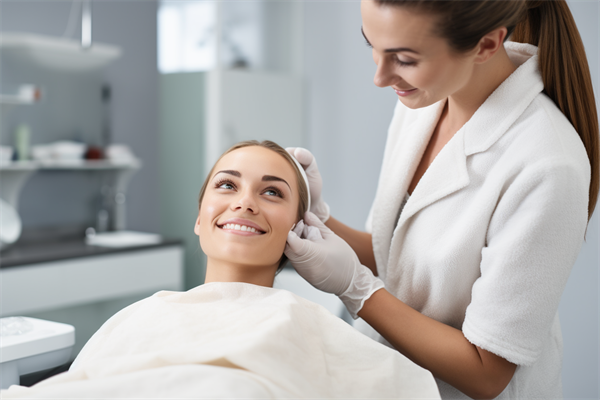How to prevent the risk of infection after breast augmentation surgery in Chengdu?
With the continuous improvement of people's aesthetic concept, breast augmentation surgery has become a common cosmetic surgery. However, the risk of infection after breast augmentation surgery cannot be ignored. In order to ensure the safety and success of the operation, we need to take a series of preventive measures. This article will elaborate from four aspects: preoperative preparation, intraoperative operation, postoperative nursing and selection of regular hospitals.

Preoperative preparation
Preoperative preparation is one of the key steps to prevent infection. First of all, patients need to choose a regular hospital to ensure complete surgical equipment and experienced doctors. Secondly, the patient needs to inform the doctor of his or her allergy history and disease history so that the doctor can formulate an operation plan according to the individual differences of the patient. A series of examinations, such as routine blood test, liver function test and electrocardiogram, are also required before surgery to ensure that the patient is in good health and has low risk of surgery.
Preoperative skin disinfection is also a very important step. The patient needs to take a full bath before surgery to keep the local dry and clean. The doctor will disinfect the patient's operation site before operation to reduce the risk of bacterial infection during operation.
In addition, you also need to pay attention to your diet and living habits before surgery. Proper nutrition intake can help improve immunity and reduce the risk of infection. Patients also need to pay attention to avoid staying up late, low resistance occasions, so as not to increase the chance of infection.
Intraoperative operation
During the operation, the operating skills of doctors and nurses and the cleanliness of the operating environment play a decisive role in the risk of infection. First, doctors and nurses need to strictly perform aseptic operations in the operating room. Surgical equipment, operating table, etc. need to undergo strict disinfection treatment. Doctors need to wear sterile gloves, masks and hats to ensure that the surgical area is clean.
The intraoperative operation time also needs to be controlled within a reasonable range, and too long operation time will increase the risk of infection. Doctors also need to reduce tissue damage during surgery to avoid bleeding and local tissue ischemia, which can reduce the chance of infection. After the operation, the doctor needs to thoroughly clean the operation area and keep the local clean.
In addition, intraoperative antibiotic prevention is also very important. According to the individual differences of patients and the risk of surgery, doctors should give appropriate antibiotic prevention to reduce the chance of intraoperative infection.
Postoperative care
Postoperative nursing measures are directly related to the safety and recovery of surgery. First of all, patients need to rest and maintain local cleanliness in strict accordance with the doctor's requirements. Patients should be careful not to scratch the surgical site to avoid infection. At the same time, the patient needs to change the wound dressing on time according to the doctor's advice to keep the wound dry.
Postoperative antibiotic use is also an essential step. The doctor will give appropriate antibiotic treatment according to the intraoperative situation and the risk of postoperative infection. Patients need to take antibiotics on time and in proper amount, and gradually stop taking antibiotics under the guidance of doctors.
In addition, regular review after surgery is also very important. Patients need to review the wound condition regularly according to the doctor's requirements, and find and deal with the early symptoms of infection in a timely manner. In case of abnormal conditions such as fever, redness, swelling and pain, the patient needs to seek medical treatment in time.
Select a regular hospital
It is very important to choose a regular hospital for breast augmentation surgery. Regular hospitals have complete equipment and professional doctor teams, which can provide high-quality surgical services. Patients can evaluate by consulting the experience of friends or relatives, consulting the qualification certificate of the hospital and successful cases of surgery.
At the same time, patients can also consult the professional qualifications and experience of doctors. Understanding doctors' working years, successful cases and patient satisfaction can better judge doctors' professional level. Choosing regular hospitals and experienced doctors can effectively reduce the risk of infection.
Summary
Infection after breast augmentation surgery in Chengdu is a problem that needs attention. In order to prevent the occurrence of infection, we need to carry out comprehensive prevention from many aspects, such as preoperative preparation, intraoperative operation, postoperative nursing and selection of regular hospitals. Only by taking a series of prevention and control measures, patients can truly and safely carry out breast augmentation surgery and obtain ideal results.




















